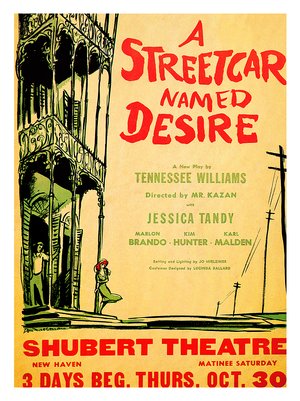"four young writers who are thrilled to be participating in a private seminar taught by the brilliant but unpredictable Leonard (Rickman), an international literary legend. But as Leonard deems some students more promising than others, tensions arise. Sex is used as a weapon, alliances are made and broken, and it's not just the wordplay that turns vicious…"
Wednesday, August 17, 2011
Latest Work From Rebeck to Hit Broadway
Thursday, August 11, 2011
Large Versus Small Theatre
One thing that really intrigued me, though, was Greig's contention that intimate theatre – the kind of one-on-one, small-scale experiences that have been such a feature of recent Edinburghs, and indeed the subject of two festivals at London's BAC – is "decadent" in these austere times. It is, he argued, a resource-heavy theatre that makes its experiences available to the few rather than the many. Whereas "there is an app," he said, "that you can open in any city in Europe, western Asia, Australasia and North and South America. It is called a pros-arch theatre. Like a lot of people in theatre, I used to see the traditional proscenium arch stage as elitist. Now I regard it as rather democratic. A lot of people can see it. It's much more available than having to go to a special place on your own, wearing headphones."
Smaller arts organizations are typically those which serve unique segments of our communities (the elderly, the disabled, communities of color, rural communities, etc.). Many of our nation's greatest artists were first exposed to the arts through these more specialized arts organizations.
Smaller organizations are also more likely to champion new adventuresome work. While larger organizations are challenged to risk large sums on a ground-breaking project, smaller organizations, with smaller project budgets, are more often the crucibles for new exciting artists and art forms.
Smaller organizations also provide a classroom for young artists who learn their craft by experimenting with less expensive and less visible projects. We would not have a large cadre of experienced artists without the smaller organizations that gave them their training and first opportunities to create work.
It would be disastrous for the future of the arts if large arts organizations -- with larger staffs and greater brand recognition -- sucked all the resources and left smaller organizations without funding.
We need to train arts managers of small organizations to market their offerings, to identify potential donors, and to develop relationships so they can compete with their larger counterparts for funding. And we need our professional donors, foundations and major individual philanthropists, to recognize the vital role played by smaller organizations.
Monday, August 8, 2011
Streetcar Headed Back to Broadway
 A headline caught my eye this morning that I thought was so appropriate. There's a new version of Streetcar headed to New York in 2012. Nicole Ari Parker (Soul Food, Remember the Titans) will play Blanche DuBois and Blair Underwood (L. A. Law) will play Stanley Kowalski. This marks the Broadway debut of both Parker and Underwood. The production is set to be helmed by Emily Mann, and will feature original music by jazz musician (and NOLA resident) Terence Blanchard.
A headline caught my eye this morning that I thought was so appropriate. There's a new version of Streetcar headed to New York in 2012. Nicole Ari Parker (Soul Food, Remember the Titans) will play Blanche DuBois and Blair Underwood (L. A. Law) will play Stanley Kowalski. This marks the Broadway debut of both Parker and Underwood. The production is set to be helmed by Emily Mann, and will feature original music by jazz musician (and NOLA resident) Terence Blanchard. Wednesday, August 3, 2011
Production History of Streetcar

A Streetcar Named Desire Production History
The original Broadway production workshopped at the Shubert Theatre in New Haven, Connecticut (see poster to the left) a few weeks before it opened at the Ethel Barrymore Theatre on December 3, 1947.
Produced by Irene Mayer Selznick
Directed by Elia Kazan
The original Broadway cast
- Jessica Tandy as Blanche DuBois
- Kim Hunter as Stella Kowalski
- Marlon Brando as Stanley Kowalski
- Karl Malden as Harold “Mitch” Mitchell
- Rudy Bond as Steve Hubbell
- Nick Dennis as Pablo Gonzales
- Peg Hillias as Eunice Hubbell
- Vito Christi as Young Collector
- Richard Garrick as Strange Man
- Ann Deere as Strange Woman
- Gee Gee James as Negro Woman
- Edna Thomas as Mexican Woman
Selznick originally wanted to cast Margaret Sullavan and John Garfield but settled on Marlon Brando and Jessica Tandy, who were virtual unknowns at the time. Brando was given car fare to Tennessee Williams’ home in Provincetown, MA, where he not only gave a sensational reading, but did some house repairs as well. Tandy was cast after Williams saw her performance in a West Coast production of his one-act play Portrait of a Madonna. Tandy won the Tony for Best Actress in a Play in 1948.
Later in the run, Uta Hagen replaced Tandy and Anthony Quinn replaced Brando. It's interesting to note that Hagen's portrayal of Blanche was NOT directed by Kazan - and as a result, this new production refocused the story back on Blanche and pulled it away from Stanley.
I found a great anecdote on IMDb about Brando's performance in Streetcar. I've copied it here for ease of reading:
The problem with casting Brando as Stanley was that he was much younger than the character as written by Williams. However, after a meeting between Brando and Williams, the playwright eagerly agreed that Brando would make an ideal Stanley. Williams believed that by casting a younger actor, the Neanderthalish Kowalski would evolve from being a vicious older man to someone whose unintentional cruelty can be attributed to his youthful ignorance. Brando ultimately was dissatisfied with his performance, though, saying he never was able to bring out the humor of the character, which was ironic as his characterization often drew laughs from the audience at the expense of Jessica Tandy's Blanche Dubois. During the out-of-town tryouts, Kazan realized that Brando's magnetism was attracting attention and audience sympathy away from Blanche to Stanley, which was not what the playwright intended. The audience's sympathy should be solely with Blanche, but many spectators were identifying with Stanley. Kazan queried Williams on the matter, broaching the idea of a slight rewrite to tip the scales back to more of a balance between Stanley and Blanche, but Williams demurred, smitten as he was by Brando, just like the preview audiences.
For his part, Brando believed that the audience sided with his Stanley because Jessica Tandy was too shrill. He thought Vivien Leigh, who played the part in the movie, was ideal, as she was not only a great beauty but she WAS Blanche Dubois, troubled as she was in her real life by mental illness and nymphomania.
Interesting. Anyway, the play went on to open on London's West End with the following production staff:
The Original London Production (1949)
Directed by Sir Lawrence Olivier
Featured Vivian Leigh (Blanche), Bonar Colleano (Stanley), and Renee Asherson (Stella)

Most of the original Broadway team brought the play to the silver screen.
Directed by Elia Kazan
- Vivian Leigh as Blanche DuBois
- Kim Hunter as Stella Kowalski
- Marlon Brando as Stanley Kowalski
- Karl Malden as Harold “Mitch” Mitchell
- Rudy Bond as Steve Hubbell
- Nick Dennis as Pablo Gonzales
- Peg Hillias as Eunice Hubbell
- Wright King as A Collector
- Richard Garrick as Doctor
A large number of changes had to be made to the script in order to conform to the Hollywood Production Code. The ending is much more ambiguous, and a number of references had to homosexuality and suicide had to be removed from the script. It still ran into problems with various decency groups. The film was nominated for 12 Oscars and won 4 - Best Actress (Vivian Leigh), Best Supporting Actor (Karl Malden), Best Supporting Actress (Kim Hunter), and Best Art Direction-Set Decoration Black & White (Richard Day and George Hopkins).
Note that Elia Kazan and Marlon Brando were both nominated but did not win. Kazan lost to George Stevens for A Place in the Sun and Brando lost to Humphrey Bogart for The African Queen.
There have been a few notable revivals since then.
1992 Broadway Revival (at the Barrymore)
Featured Jessica Lange (Blanche), Alec Baldwin (Stanley), Amy Madigan (Stella), Timothy Carhart (Mitch), with James Gandolfini and Aida Turturro in support roles.
1997 50th Anniversary Production - New Orleans
Music by the Marsalis family
2005 Broadway Revival
The 2005 Broadway revival was directed by Edward Hall and produced by The Roundabout Theater Company. It starred John C. Reilly (Stanley), Amy Ryan (Stella), and Natasha Richardson (Blanche). The production would mark Natasha Richardson’s final appearance on Broadway owing to her death in 2009 in a skiing accident.
Directed by: Jeanie K. Smith
Featuring:Join us as we celebrate this classic on the centennial of one of America's greatest playwrights. We've sold out every show to date, so buy your tickets in advance - the show must close August 21st!
Tuesday, August 2, 2011
Artist in Residence: Jeffrey Lo
 At Dragon, part of our mission is to foster the growth of young, up and coming artists, be they directors, actors, or designers. To support this mission, we sometimes have an "artist in residence." Currently, Jeffrey Lo is serving as the Dragon Artist in Residence. Since he's involved with Streetcar we thought we'd sit down and talk to him about life at Dragon. Here's what he had to say.
At Dragon, part of our mission is to foster the growth of young, up and coming artists, be they directors, actors, or designers. To support this mission, we sometimes have an "artist in residence." Currently, Jeffrey Lo is serving as the Dragon Artist in Residence. Since he's involved with Streetcar we thought we'd sit down and talk to him about life at Dragon. Here's what he had to say.Q:Well that leads us to another question - you're Assistant Directing for our current production, A Streetcar Named Desire. What exactly does the assistant director do?

